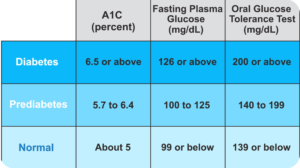Chronic back pain is an alarmingly common ailment, one that can degrade quality of life and even lead sufferers to become addicted to prescription painkillers in the hunt for any measure of relief. Effective solutions have proven elusive, but a treatment recently approved by the FDA may represent a new and pain-free lease on life for many back-pain patients.

As with many back-pain treatments, the muscle-stimulating implant ReActive8 is only appropriate in certain cases. Anyone with structural damage to the spine or spinal nerves will likely not benefit from this advancement. However, for cases where it makes sense, the device can be life altering. Candidates should have struggled with chronic back pain for longer than six months, have pain and issues that have not responded to other therapies, and exhibit no evidence of structural damage to the spine, such as herniated discs.
ReActive8 was approved in 2020, and its use has spread as more and more practitioners become knowledgeable in the technology and surgery required to implant it. It is the size of miniature deck of playing cards and is implanted in an outpatient procedure. Much like a pacemaker can aid a heart in maintaining a stable rhythm, the ReActive8 stimulates a key core muscle called the multifidus. Patients trigger the ReActive8 for thirty minutes twice a day, via wireless remote. That strengthens the multifidus, stabilizes the core, and prevents any subsequent damage to the spine, discs, or other structures of the back.
The one potential roadblock for ReActive8 candidates is cost, which is not universally insured. The device and the surgery can run tens of thousands of dollars. However, most experts anticipate that insurers will eventually acknowledge the value of the device once there is a greater track record of success, and begin insuring the procedure as an alternative to other treatments.
Other Steps
Regardless of medical treatment, certain lifestyle changes can have a significant impact on lessening chronic back pain.
- Gentle Yoga. Yoga is a particularly good exercise regimen for back-pain sufferers. Not only do gentle poses (those that are done slowly and don’t push the envelope in terms of balance or muscle stress) often alleviate the musculoskeletal strain of an underlying condition, and you can use props to support poses and lessen any burden on the back. Lastly, the controlled breathing commonly used in yoga can help in pain management.
- Anti-inflammatory Diet. All pain in the body has an element of inflammation, so reducing inflammation through diet is a good long-term painkilling strategy. Reduce processed foods and especially refined sugars in your diet. Eat a colorful diet focused on vegetables and whole foods, and consume omega-3 rich foods like fatty freshwater fish.
- Experiment with Holistic Therapies. Even if they don’t cure your condition, therapies such as acupuncture and acupressure can often have significant impact on lower back pain. These are usually low cost and easy, so you’re not risking much for what can potentially be a large payback in pain reduction.
- Stay Active. In addition to specific low-impact, flexibility-focused exercises, staying active throughout the day—walking, doing housework, or simply moving around—can help back structures stay mobile and lubricated, reducing pain.
Chronic back pain can be a life-sapping condition, but that does not have to be the case. A wealth of treatments are available, and progressive, incremental lifestyle changes can have a significant impact over the long run. If you think the ReActive8 implant may be an answer for your back pain, consult your doctor for an assessment.





